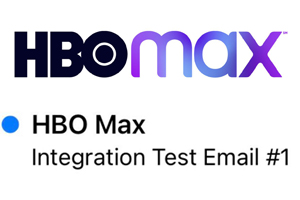


If You Mess Up, Fess Up: HBO Max Nailing Crisis Management
By Howard Fencl/Hennes Communications
Who doesn’t love HBO Max? It’s where Wonder Woman and Aquaman hang out. You can catch Kate Winslet in “Mare of Easttown” or slog through “Harry Potter and the Sorcerer’s Stone” with your kids for the umpteenth time.
So, what’s all the buzz about HBO’s new “Integration Test Email #1,” which Twitter users call “an intriguing new drama from HBO?” Troll around Twitter, and you’ll find excited HBO fan posts:
“Tonight watch … ‘Integration Test Email #1’ on HBO MAX!!!!”
“Hearing a lot about Integration Test Email #1, but I’m going to wait for HBO Max to release Integration Test Email #2-10 and then binge … them all in one night.”
Except, of course, these posts are dripping with sarcasm. Turns out a hapless intern at HBO mistakenly pressed “ENTER” on a draft tweet and sent a test message to HBO Max subscribers. HBO smartly and quickly tweeted a response:
“We mistakenly sent out an empty test email to a portion of our HBO Max mailing list this evening. We apologize for the inconvenience, and as the jokes pile in, yes, it was the intern. No, really. And we’re helping them through it.”
No one died, nothing was on fire, so although it was a one-off media story and a minor issue, the incident offers an important lesson if you or someone in your organization screws up: No matter how big or small the mistake, own it.
We call it the “3 F’s:” If you FOUL UP, FESS UP AND FIX UP (feel free to substitute the alliterative expletive of your choice for “foul up,” of course). Admit you’ve made a mistake, apologize and pivot to talking about how you’re going to to fix it.
In this instance, HBO accepted the blame and apologized for the tweet. Did HBO throw the intern under the bus? I’d submit the admission was more about transparency to counter Twitterverse speculation. To fix the situation, the company is “helping [the intern] through it,” ostensibly so the gaffe doesn’t recur. The company could’ve gone for blood and fired the intern, but instead seems to be turning the issue into a teachable moment. The end of the tweet reads like an expression of empathy – this is a company with a heart. And that’s good for HBO’s corporate reputation.
In another situation – one a bit uglier – HBO was scorched by users for releasing a bug-ridden viewing app for customers using Apple TV, leaving them unable to pause, fast forward or rewind programming. The company again took a “3 F’s” approach, with its EVP/General Manager personally responding to tweets, saying that technicians were making
“…one whale of an effort to address this with app updates as soon as humanly possible. You’ll hear no excuses from us . . . fixes coming.”
The company’s developers personally responded to negative reviews on Apple’s App Store Preview pages. Digging through the complaints and developer responses, I have yet to find a “cut-and-paste” response – the posts I reviewed always began with a sentence or two directly addressing language in customers’ complaints, such as:
Developer Response: “Hi! We released an update to our Apple TV app to resolve the issues you have been experiencing. Please update the app in your Apple TV App Store and let us know if there’s anything else we can help you with.
and
Developer Response: “Hi there, thanks for taking the time to share your feedback! It really means a lot as we’re always working to improve our app. Your detailed notes are incredible [sic] helpful.”
The lesson here: When you make a mistake, go everywhere your customers or key audiences post on social, admit the error, apologize, and describe the fix you’re undertaking. The “3 F’s” won’t make your problem go away, but if you deliver on your promise, your customers will be happier, your brand will be stronger, and you’ll build loyalty with your key audiences. And that’s money in the bank.